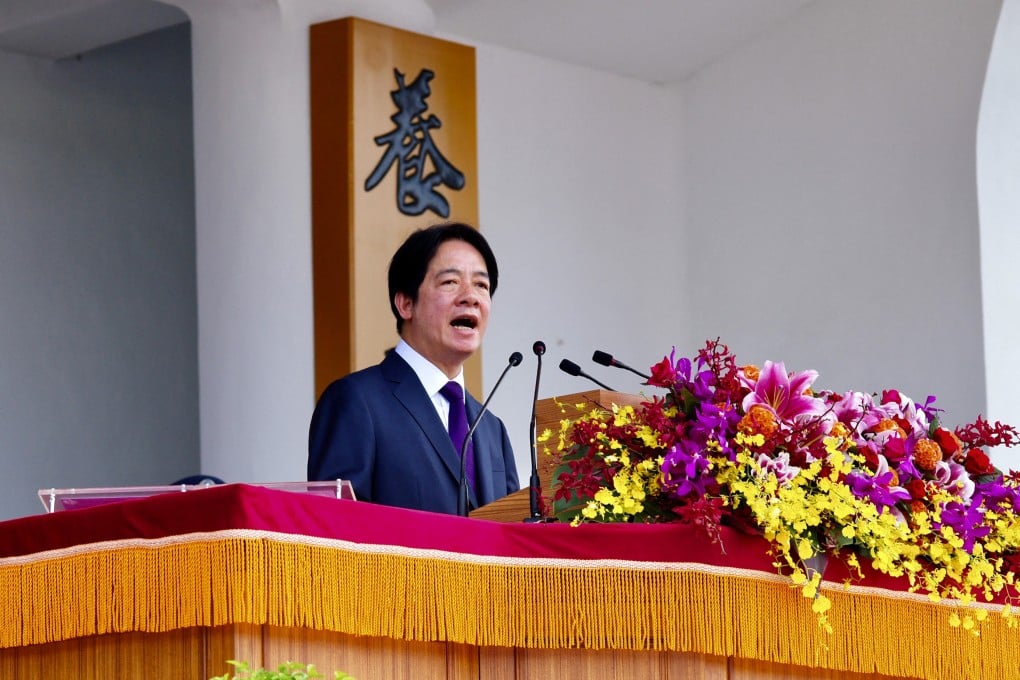100 days into the job, Taiwan’s new leader is cutting mainland ties by reframing history
William Lai Ching-te has used key speeches to showcase his fiery stance on cross-strait relations and minimise mainland links, analysts say

Cross-strait relations have deteriorated significantly since Lai took office on May 20, according to analysts, who say he has actively sought to sever Taiwan’s historical ties with the mainland.
His promotion of the “mutual non-subordination” theory to define Taiwan’s relationship with Beijing has raised concerns among observers, who fear it could further strain cross-strait ties and potentially lead to conflict.
In his three major speeches on cross-strait relations since taking office, Lai has consistently stressed his view that the two sides of the Taiwan Strait are no longer connected.
According to analysts, Lai has sought to use these speeches to project a permanent disconnect, reframing the two sides of the strait as adversaries rather than kin.